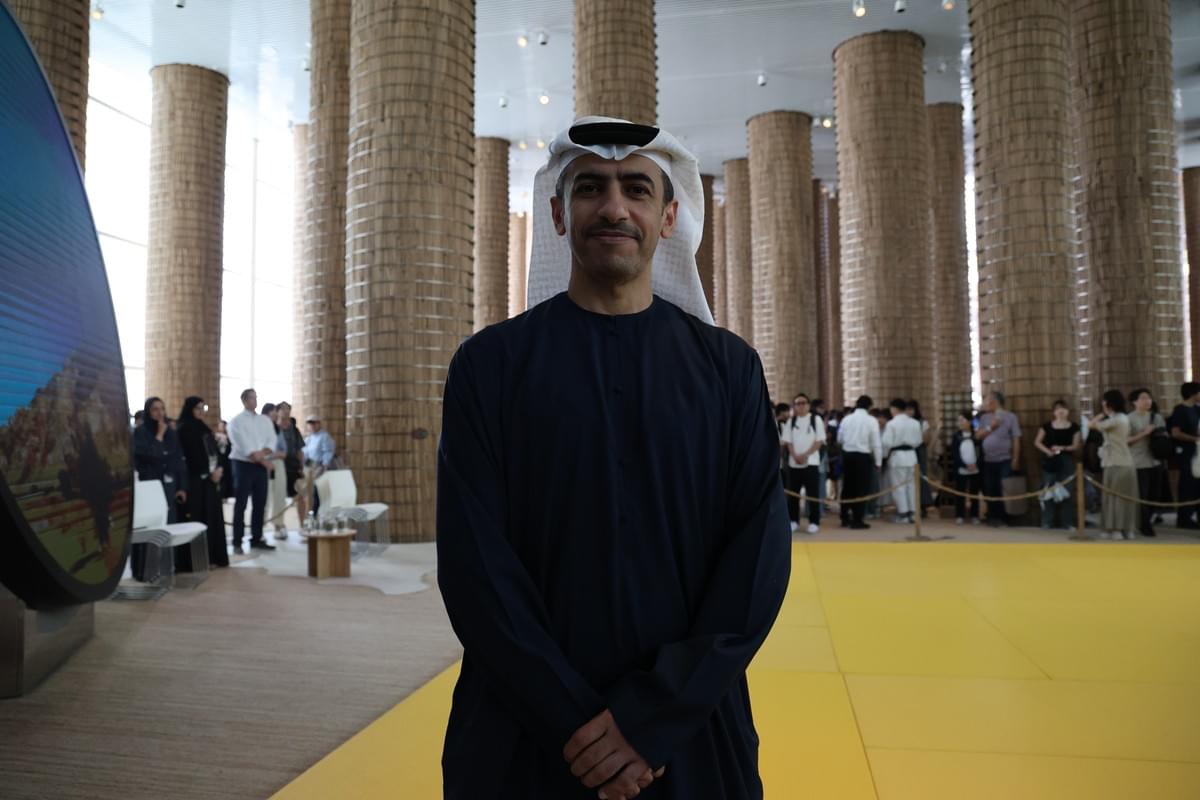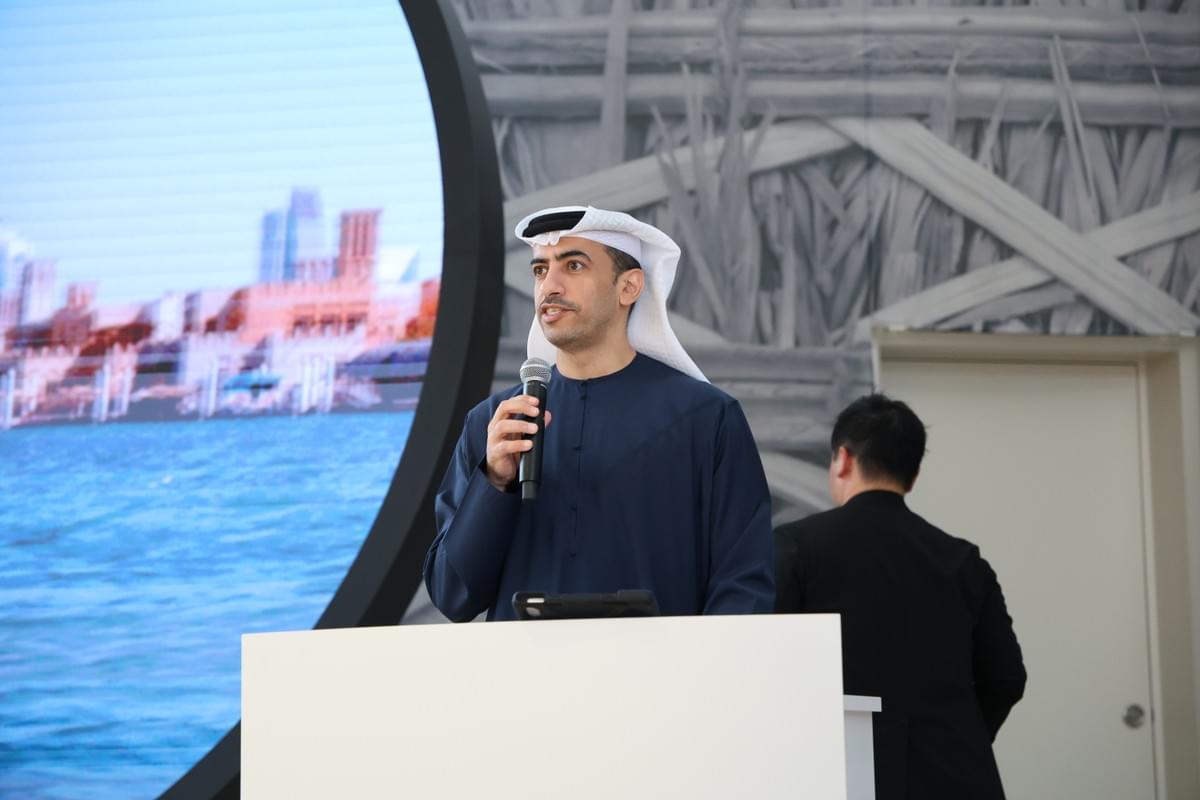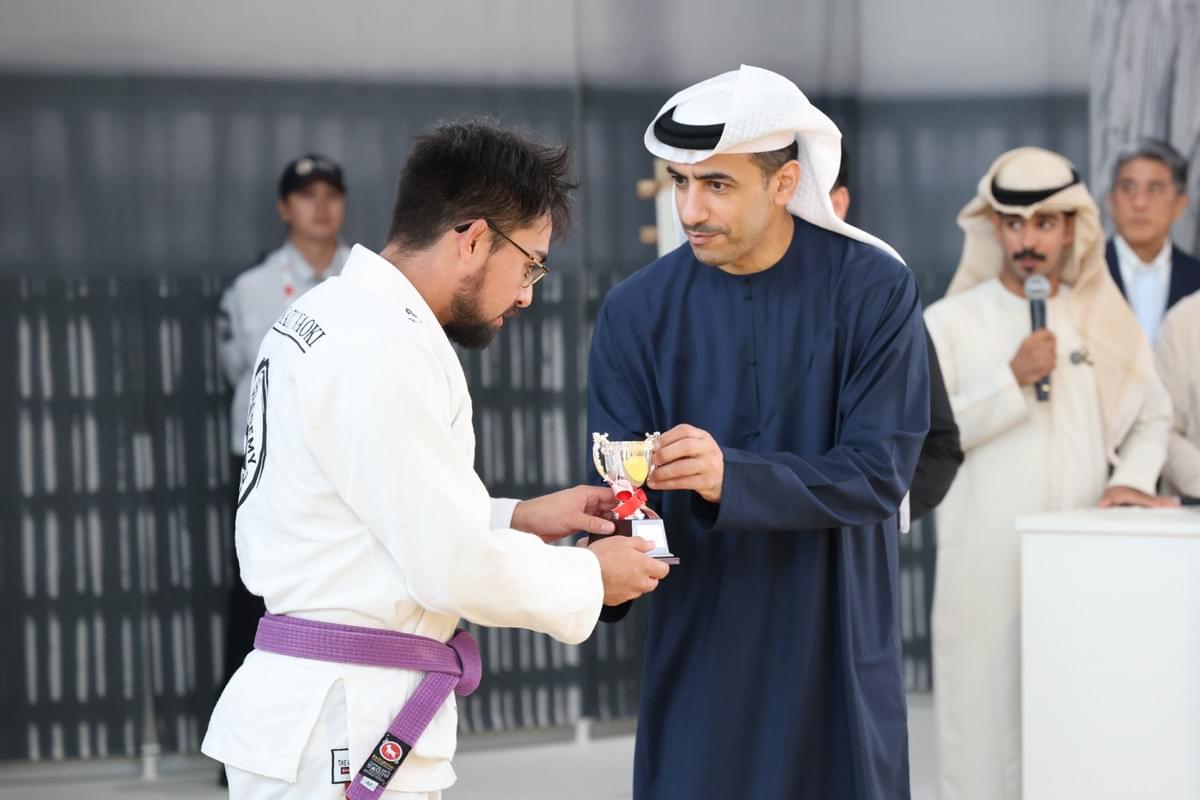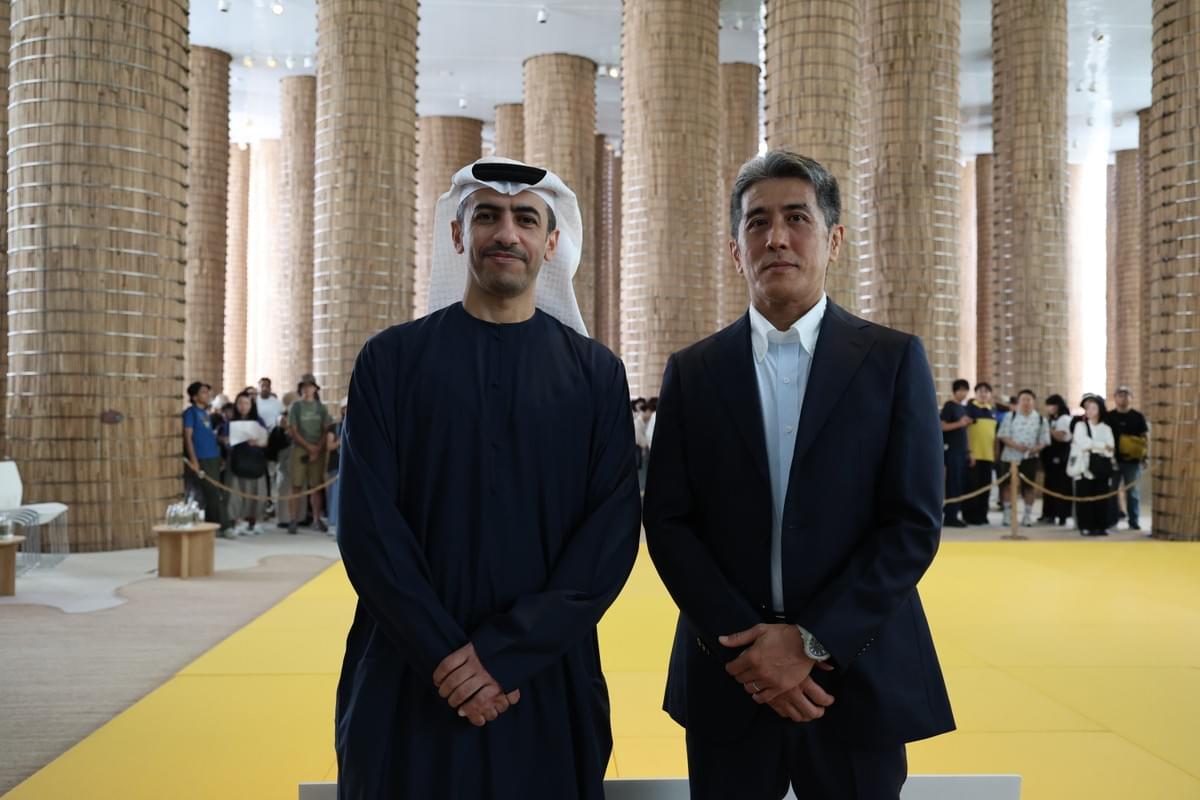UAEと日本をつなぐ柔術イベント――教育・軍・警察にまで広がる普及の波 シハーブ・アフマド・アル・ファヒーム駐日アラブ首長国連邦大使インタビュー
UAEと日本をつなぐ柔術イベント――教育・軍・警察にまで広がる普及の波 シハーブ・アフマド・アル・ファヒーム駐日アラブ首長国連邦大使インタビュー

日本にルーツがあるブラジリアン柔術は、いまや世界各地に広がりを見せている。
その中でも特に大きな普及を遂げているのがUAE(アラブ首長国連邦)だ。
2008年に教育プログラムとして導入されて以来、学校や軍、警察にまで柔術が取り入れられ、国を挙げての取り組みとなっている。
今回、大阪万博のUAEパビリオンで柔術イベントが開催され、両国をつなぐ文化交流として注目を集めた。
イベントが終わった後に主催のシハーブ・アフマド・アル・ファヒーム駐日アラブ首長国連邦大使に話を聞き、開催の背景や手応え、そして今後の柔術の展望について語ってもらった。

――今回、この柔術のイベントをやることになったきっかけから教えてください。
シハーブ:やっぱりこれは多くの人にとってまだピンとこないと思います。UAEで日本から来た格闘技である柔術が盛んになっているということをアピールしたかったんです。そして、そのスポーツが日本とアブダビの架け橋になっている、そういう現在の状況を見せたかった。一般の人に伝えたい、という思いがありました。
――今回このイベントをやってみて、どう感じましたか。
シハーブ:日本の柔術の存在を知らない人にも、「実際にこういうものなんだ」と伝えられたと思います。有名で、そしてこれだけ盛んになっているということをアピールするのが目的でしたので、それは成功したと思います。
――今日は競技的なことだけでなく、実演的な内容もありました。それにはどんな意図があったのでしょうか。
シハーブ:柔術をしている人でも、実際に生活の中で役立つスポーツだということを知らない人がいるかもしれません。今日はせっかくなので、柔術のもう一つの一面を見せることができたと思います。
――スピーチの中で「UAEでは学校教育に柔術を取り入れている」とおっしゃっていました。今どれくらいの人が柔術をやっているのでしょうか。
シハーブ:正確な数字は分かりませんが、学校教育の中で取り入れられているので、数千人規模の子供たちが学んでいます。その上で、軍や警察官も柔術を学んでいて、任務のために必要なスキルとしてカリキュラムに組み込まれています。
――2008年に柔術がUAEに入ってから、どのような変化がありましたか。
シハーブ:まず子供向けのプログラムが広まりました。競技者や実践者はより健康になり、それは肉体面だけでなく精神的な安定にもつながっています。効果は非常に分かりやすく見られています。
――これからUAEにおいて、柔術をどのように発展させていきたいですか。
シハーブ:このスポーツは健康面でも精神面でも効果が証明されています。ですから、私たちは柔術がさらに広まるよう力を入れていきたい。日本への普及に関しても、できることがあればぜひサポートしたいと考えています。
――UAEは柔術に大きな賞金を出すなど、世界の柔術シーンに大きな影響を与えました。最後にメッセージをお願いします。
シハーブ:柔術の普及に取り組んでいる連盟の人たちには心から感謝しています。一人でも多くの人に柔術が広まるよう、これからも努力を続けます。よろしくお願いいたします。

Interview: Promoting Jiu-Jitsu in the UAE and Beyond
Q: Could you tell us what led to organizing this jiu-jitsu event?
This event is a collaboration between the UAE and Japan, sharing our cultures and bringing a sport that originated in Japan, later developed in Brazil, and now has become global
Q: After hosting this event, how do you feel about the outcome?
Through this event, people in Japan and beyond can better understand the importance of jiu-jitsu. It was a chance to show visitors who had never heard of the sport what it really is, and to highlight how widely it is practiced today.
Q: In addition to competitive matches, there were also demonstrations. What was your intention behind that?
In terms of demonstrating real-life applications, it was important to show that jiu-jitsu is not only for competition. Even people who may have heard of the sport might not realize how practical it can be. By including demonstrations, we were able to showcase another side of jiu-jitsu.
Q: In your speech, you mentioned that jiu-jitsu is already taught in schools in the UAE. How many people are practicing it now?
Since 2008, we have built programs at the school level, and today more than 350,000 students are training. Beyond schools, jiu-jitsu has also been introduced into the army and police, not only for self-defense but also as part of official training curricula.
Q: How has the practice of jiu-jitsu changed in the UAE since it was first introduced in 2008?
After 2008, the discipline became very important. It started with children’s programs, but it also had an impact on practitioners of all ages. We have seen athletes and practitioners becoming healthier?not only physically, but also mentally. The benefits are clear and visible across the country.
Q: Looking ahead, how would you like to see jiu-jitsu develop in the UAE?
Together, we want to make jiu-jitsu truly global. Our goal is to help people maintain a healthy mind and body through this sport. We are committed to supporting initiatives that will expand the reach of jiu-jitsu, both in the UAE and in countries like Japan.
Q: The UAE has also influenced the global jiu-jitsu scene by offering major prize money. What are your thoughts on this contribution?
This sport has grown because of the support of organizations and federations dedicated to its promotion. We are grateful for their work. By investing in athletes and competitions, the UAE has helped transform the global landscape of jiu-jitsu. We hope to continue spreading this art so that more people around the world can experience its benefits.

